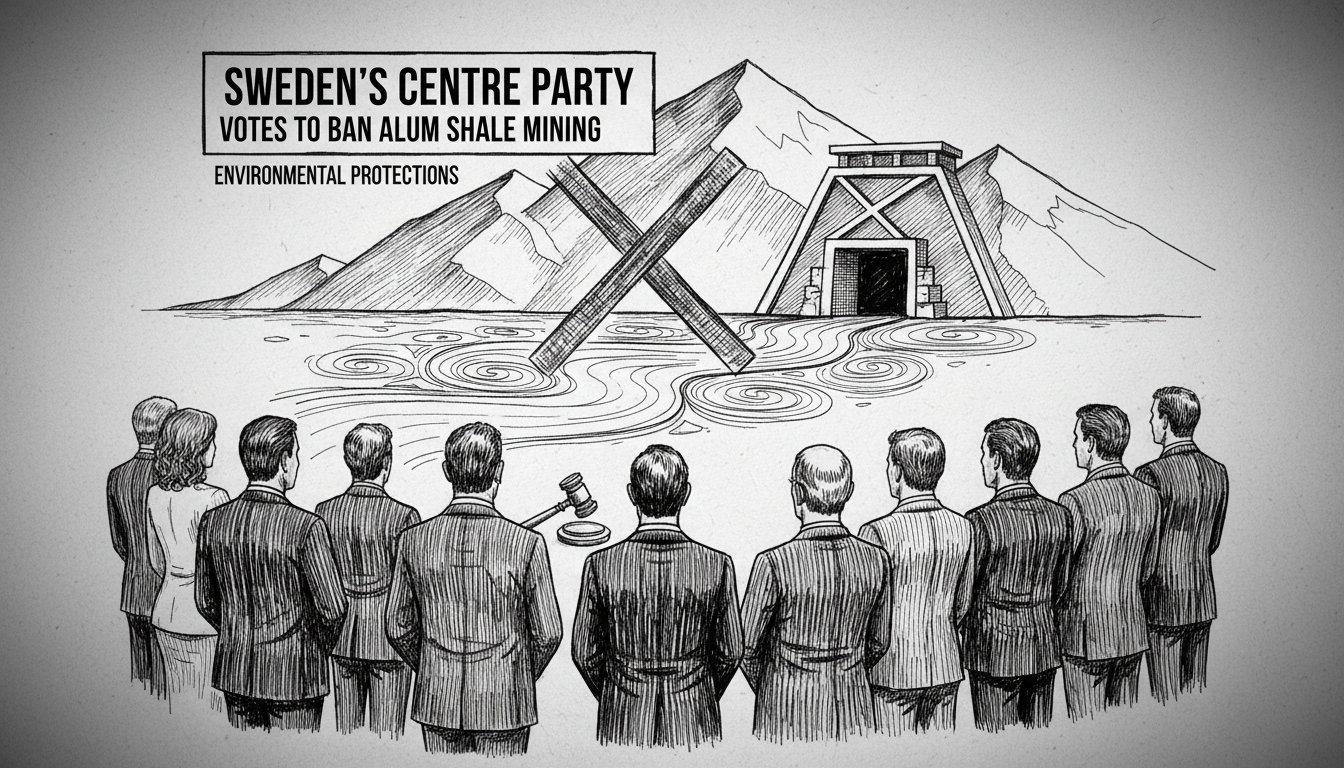Sweden's Centre Party has taken a firm stance against mining alum shale. Delegates at the party conference in Karlstad voted to push for a complete ban on extracting minerals and metals from this controversial rock formation. The decision goes beyond the party leadership's original proposal, which only called for investigating restrictions near sensitive water environments.
Alum shale contains various minerals including uranium. Mining this rock type poses substantial environmental risks, particularly to water systems. The extraction process can release harmful substances into groundwater and surface water.
Representatives from Jämtland voiced strong concerns during the debate. This northern region contains significant alum shale deposits. Local officials emphasized what they called unacceptable threats to groundwater and agricultural land. They argued that mining could permanently damage the region's water quality and farming capabilities.
This environmental position creates an interesting political dynamic. The Centre Party simultaneously wants to shorten permit processes for general mining operations. The party appears to be drawing a clear distinction between different types of mining activities.
Alum shale mining has been controversial in Sweden for years. The rock formation contains both valuable metals and potentially hazardous materials. Previous mining attempts have raised environmental concerns across the political spectrum.
The Swedish mining industry faces increasing scrutiny as the country pursues both economic development and environmental protection. This ban proposal reflects growing awareness about specific environmental risks associated with certain mineral extraction methods.
International readers should understand Sweden's delicate balance between resource extraction and environmental protection. The country has substantial mineral resources but also maintains strong environmental regulations. This creates constant tension between economic development and conservation interests.
The Centre Party's position could influence broader Swedish mining policy. As a traditional center-right party with rural roots, their environmental stance carries weight in national debates. This decision might prompt other parties to clarify their positions on specific mining types.
What happens next? The party will now work to translate this conference decision into concrete policy proposals. They will likely push for legislative changes to implement the alum shale mining ban. The proposal will need to navigate Sweden's complex political landscape and potentially face opposition from mining interests.
The debate highlights a fundamental question facing many Nordic countries. How can societies harness natural resources while protecting fragile ecosystems? Sweden's approach to this challenge could offer lessons for other nations facing similar dilemmas.

